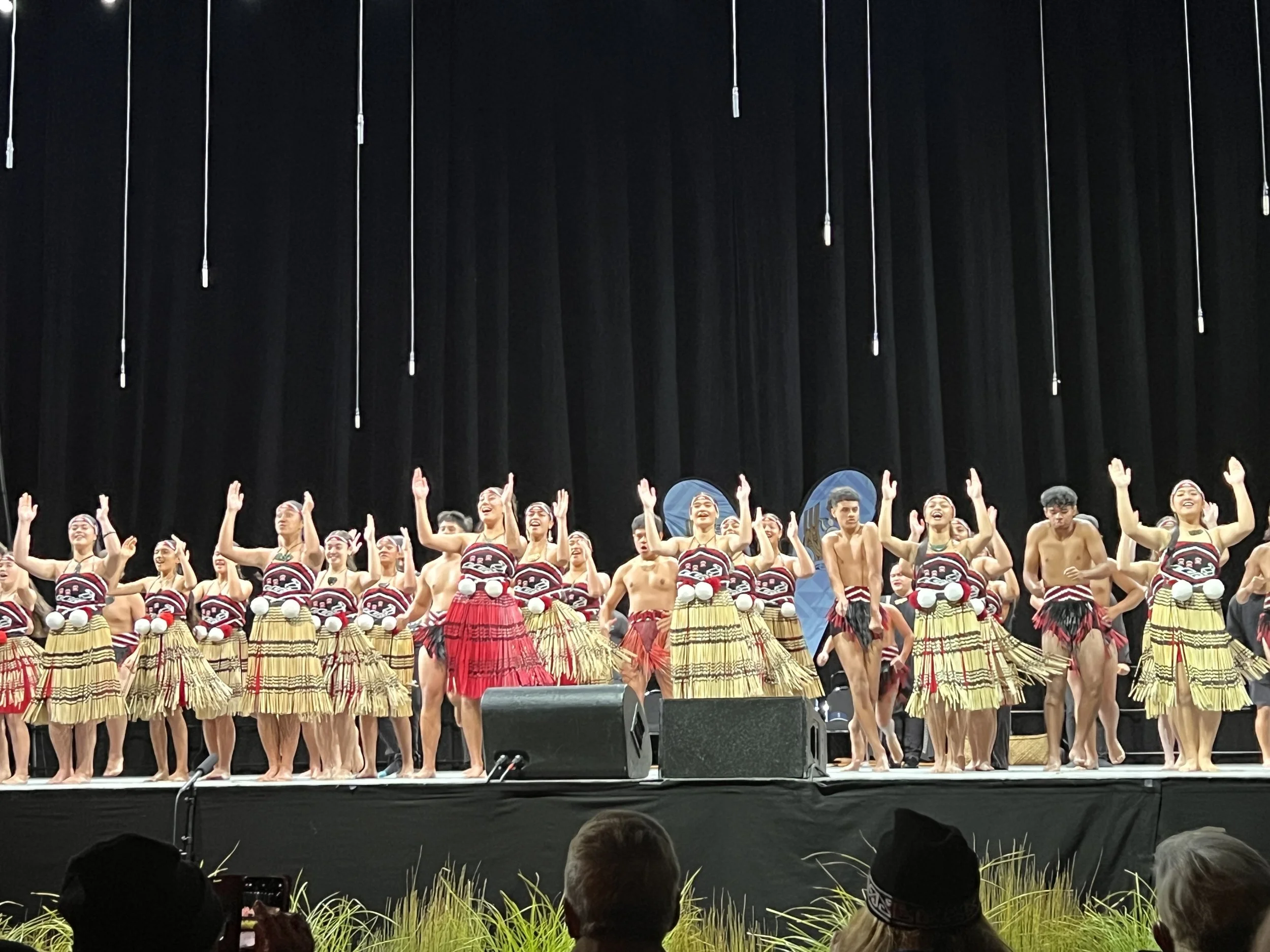Celebrating Kapa Haka at Haka Ngahau
This Saturday, Spark Arena came alive as some of the best kapa haka rōpū from Tāmaki Makaurau went head-to-head at the Haka Ngahau Tāmaki finals.
From as early as 8am, the outside of the arena buzzed with life as stalls run by local Māori businesses offered kai, clothing, taonga and more. Kaumātua, whānau, and kapa haka fans of all ages gathered, joined by Whakaata Māori’s crew capturing every moment for those watching from home.
I found myself front and centre in the third row from the stage, completely immersed in the colours, sounds, and wairua of the performances. Each rōpū brought their own unique style, from rangatahi full of fearless energy to kaumātua carrying decades of experience. Every performance was steeped in mana, kaha, and deep cultural pride.
Ngā Pakeke o Te Uru o Tāmaki, a kapa haka group of Māori elders formed in 2020, show that age is no barrier to performing on stage in front of a large crowd of haka enthusiasts.
Haka Ngahau Tāmaki is run in partnership between Te Whare Wānanga o Awanuiārangi, Ngāti Whātua Ōrākei, and Te Mātatini, creating a platform that’s not just about competition, but about celebrating and uplifting te ao Māori. It’s a day where reo, tikanga, and whanaungatanga take centre stage.
One of my personal highlights was watching Te Kapa Haka o Te Wharekura o Hoani Waititi Marae. Their bracket was a powerful mix of precision and emotion, with the first half dedicated to the Māori Queen, Nga Wai Hono i te Pō. The crowd was visibly moved and in total silence where you can feel everyone holding their breath, before completly erupting into cheers.
Throughout the day, rōpū from across the rohe brought waiata, haka, poi and mōteatea that spoke to whakapapa, whenua, and lived experiences. Whether it was political commentary woven into a haka taparahi, or poi perfomances that told a story of aroha and resilience, each set was a reminder of the depth and dynamism of kapa haka as an artform.
For anyone who couldn’t make it in person, the full line-up of performances is available to watch on Whakaata Māori. But being in that space is something you can’t quite replicate through a screen.
Haka Ngahau Tāmaki wasn’t just a showcase of skill, but a living, breathing expression of identity. It reaffirmed that kapa haka isn’t just performance, it’s connection, it’s resistance, and it’s celebration.


